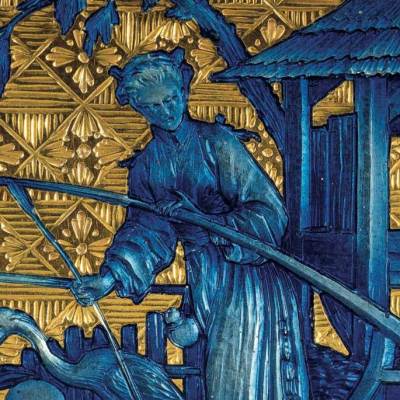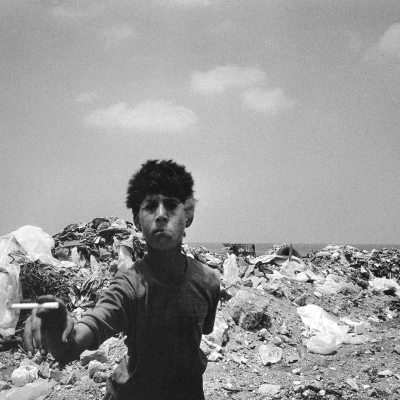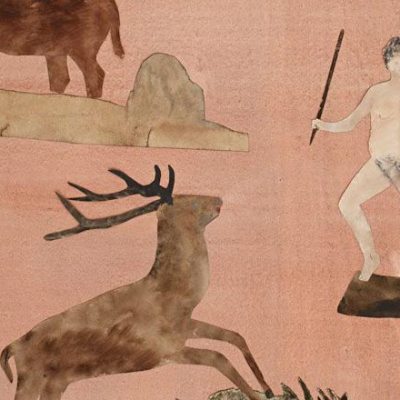Richard Serra is known chiefly for his public sculptures. Monolithic in scale and form, they alter the viewer’s perception of weight, and force him to reconsider his relationship to objects which differ vastly in size. The same effect is achieved by Serra’s prints, 15 of which are on display for the first time in the UK at the Alan Cristea Gallery.
The exhibition includes four groups of etchings produced since 2004. Extension and Trajectory, both from the Arc of the Curve series (2004), are impressive blocks of black ink that stretch, lean and bend in the finite area of their white paper. The sequence of Promenade Notebook Drawings (2009) presents five smaller pairs of ink towers, while in Ballast (2011) hefty black rectangles try to weigh down the paper, enabled by the thin strips of white at the top of each piece.
Some of the prints have real presence. The massive black shapes of Trajectory cast long, mysterious shadows of energy into the exhibition space, and it is noticeable where such shadows begin and end. To the viewer stood directly in front of them, the prints are monumental totems calling for veneration; but from outside their squares of influence the same works are lifelessly geometric.
Part of the reason the Trajectory prints hold such power is their juxtaposition of large and very small scales. The glass over the black printed areas of the paper reflects daylight, so while looking at a single print the viewer is made aware of the entire room (and himself within it). Simultaneously, one’s search for a scale by which these black shapes might feel more familiar leads one to linger on their wonderfully textured, minutely pitted surfaces.
Whereas the Arc of the Curve series commands awe, the Promenade Notebook Drawings invite interpretation. Whatever Serra has said in interviews about his art being apolitical, a sequence whose prints contain two black towers leaning at various angles is not without resonance. The prints of course give no explicit comment, but it is hard to avoid reading something into the blood-like spatters of ink surrounding the rectangles, and the description of such iconic geometry as ‘mark-making’ (Serra’s preferred term for drawing and printing) feels political in itself.
In contrast to the Arc of the Curve series and Promenade Notebook Drawings, Ballast fails to make an impact. Each work has been framed and lit in such a way that a shadow cuts across the uppermost edge of the paper, and since their effect relies on the interaction of the white and black spaces, the weight they should hold evaporates.
Serra has remarked that his work on paper is distinct from his sculpture, but this display demonstrates that the same concerns – of weight and scale – that govern his more famous practice also shape his prints.
‘Richard Serra: Trajectory’ is at the Alan Cristea Gallery from 11 September–8 October 2013.




